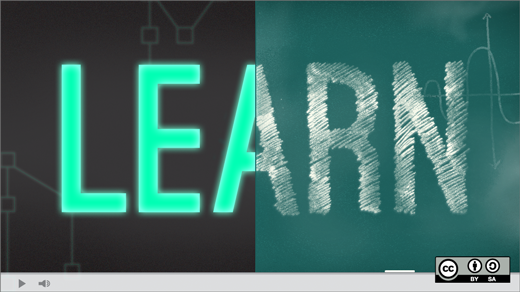The communication technologies of the 21st Century have disrupted both the time-honored ways of delivering education and its social and cultural purposes. Today, the debate over delivery is whether the digital technologies and open source applications are actually a means for enlightenment.
Many do not embrace these new technologies because they believe them to be a shoddy imitation of the class room experience. Or, that the millennial mind needs to be fixed, certainly not the educator's.
The debate over purpose is whether online material is primarily a financial tool to create new revenue streams by video recording lectures to reach distance and nontraditional students or an opportunity to systemically restructure the substance and nature of higher education.
New communication technologies are neither a second-rate educational experience nor a cheaper commodity. To view them as such is to diminish their value. Failure to embrace their potential is to cling to the dead idea of a 500 year old concept that lectures and books are still the primary currency for teaching and learning. Both have been replaced by binding delivery and purpose together into a new 21st century entity.
The educational divide
These internal debates over delivery and purpose have created an educational divide that rests on false distinctions between traditional classes and online material, rather than their complementary aspects of how to effectively use the new technologies for teaching and learning. These debates go to the core of how, not whether, the roles, functions, and responsibilities of higher education have changed as a result of the digital revolution.
The divide is paralyzing change, while higher education is failing to come to terms with unsustainable increases in tuition and the need for wider and more successful access.
A void waiting to implode
The public debate over financing higher education grows more urgent every day. When the student loan bubble bursts—as it surely will—higher education will be required to reposition itself, if it has not heeded the warning and done so proactively. On the commercial side there is no such confusion. The for-profits have both a marketing advantage and a clear strategy. Their products are practical, job centered, and non-critical. They are not part of the liberal elite, and their negotiable content better serves the preservation of traditional social values.
Education as a commodity fits the bill of state legislators who are feeling the political heat of the rising costs of public education at the same time as austerity measures requires state revenue to be replaced by tuition increases. The competition for educational dollars will only continue to grow in the face of financial constraints. This transfer of title to greater standardization, less physical structures, and lower cost is well underway.
However, contrary to its manifest appearance, the real story is not about government oversight to find a balance between consumer protection and corporate profits. It is about the role and function of teaching and learning in the 21st century as the instrument of human progress. This is no small issue. The ownership of both knowledge and learning has replaced economic growth as the gatekeeper of the human condition.
There are only two ways the merger of delivery and purpose can go:
- either, there will be a further commodification of knowledge with the for-profits competing with public institutions for the educational marketplace
- or, traditional institutions of higher education will re-invent themselves to actually serve the dual role of centers of public knowledge and to provide open source and online learning opportunities
Owning knowledge and learning
The Occupy movement provides a conceptual context for the unification of delivery and purpose into a new 21st century entity in which lectures and books are replaced by the power of open source communication technologies. Massive open online courses (MOOCs) can expand the physical, social, and temporal boundaries of the class to be both widely inclusive of the general public and still personally responsive and individually evaluative of registered students.
New technologies have given us the opportunity to restructure both how (the delivery) and what (the purpose) we teach as the counterforce to education becoming simply another commodity. It is time to close the false distinctions of the educational divide and to occupy both knowledge and learning as the new role and function of public higher education in the 21st century—as the essential instrument for the enhancement of the human condition.
Good education is both disruptive and essential for democracy. The content and who controls it does matter.







2 Comments